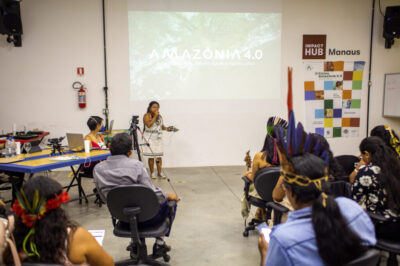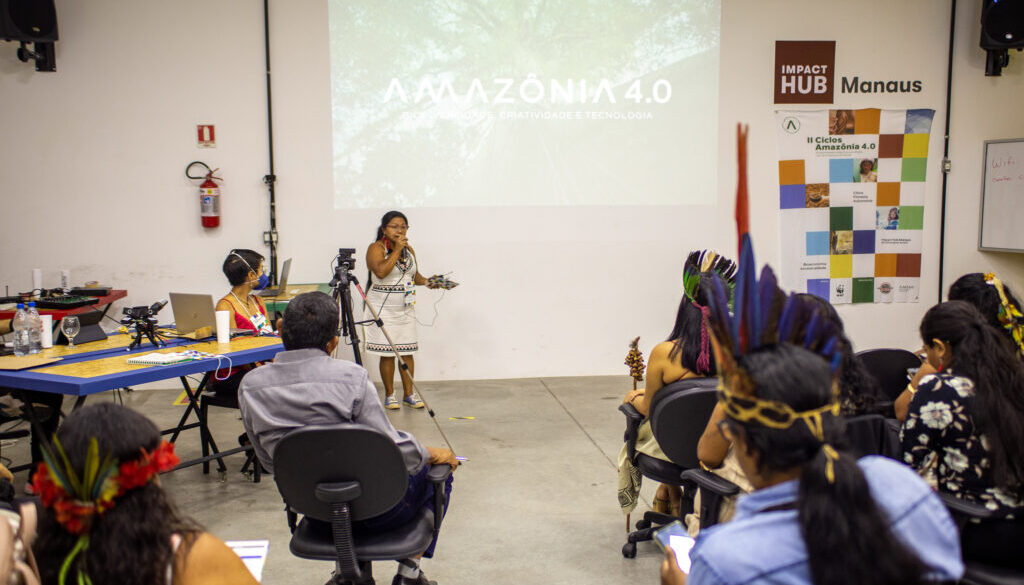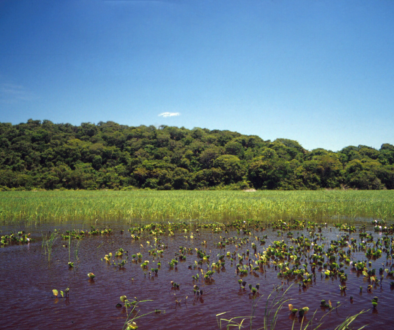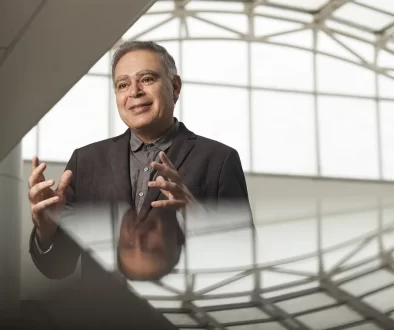Financial Autonomy Lies in Collective Action
With forest assets increasingly impacted by climate change, indigenous women are finding it even more difficult to secure their financial autonomy.
As protagonists in the climate debate and in guaranteeing sources of supplementary income for their families, they dedicated themselves to creating a collective action that guarantees better commercialization of their production, whether it is food or handicrafts.
Clarice Tukano, who spoke on Monday about financial autonomy for indigenous women, highlighted how female protagonism associated with an understanding of care results in a collective movement.

Clarice Tukano speaking at the event
“The economic principles of indigenous peoples are love, solidarity and fraternity, and everything that is collective. Autonomy is not only about handicrafts with fibers but the diversity of walking with our fauna and flora,” she considers.
We have to raise awareness among our relatives on the land. Our concern as women and as an association is that our lack of awareness of conserving nature there will be reached.
For Clarice, it’s important for native peoples to debate their values, building collectively and valuing the workforce and the context in which it is found. “We need to ensure that our cultural knowledge is safeguarded and that means continuing with our art, which in turn guarantees our financial autonomy,” she said.





